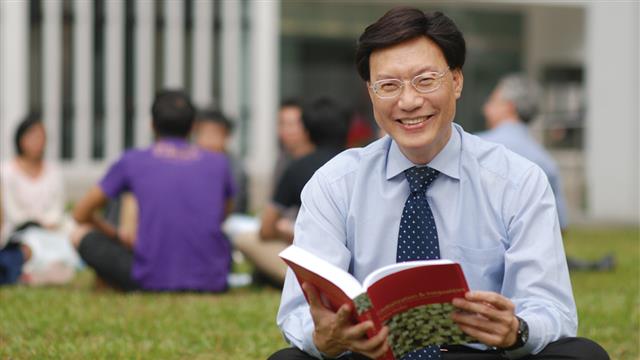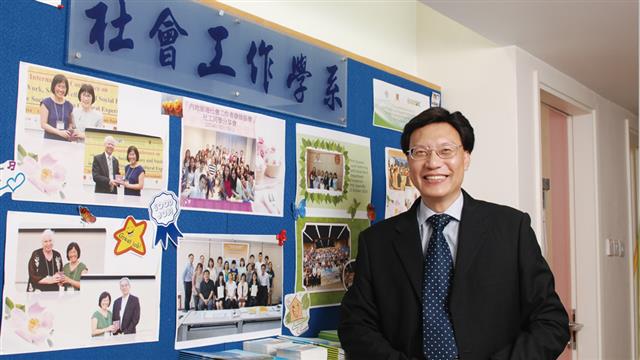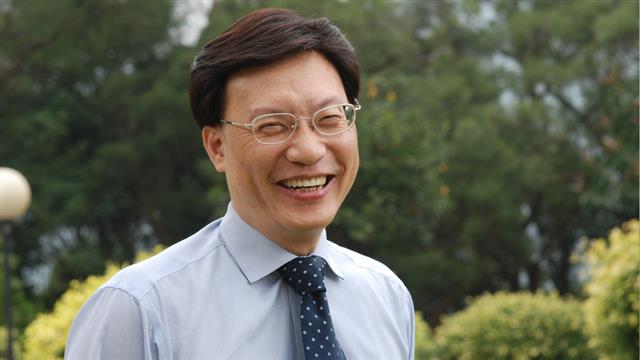How do you feel about receiving the 2014 University Education Award?
Receiving this recognition is a great encouragement. It's a real honour to be selected from among so many distinguished educators in CUHK. I also would like to thank my teacher Prof. Rance Lee who was the former Head of Chung Chi College and now the Master of Wu Yee Sun College. In 2000, in view of the critical need for service-based learning in Hong Kong, he sent me to a training course in the Philippines, so that I could introduce a service-learning programme to Hong Kong. It was the first of its kind in the field of the local higher education. The award is also recognition of Professor Lee's vision and foresight.
What interests you about youth work and youth research?
Adolescence is a special stage of life. The changes that take place in a society are clearly reflected in its youths. This is also a highly diversified group. Some will become the future elite. Others will encounter stupendous challenges in their studies and career, which may result in a reliance on drugs, dropping out of school or losing their jobs. I hope to look into the reasons behind these differences in what happens to the lives of the young.
Please tell us about your fieldwork placement in Temple Street when you were a university student.
Temple Street was then a mystery to university students, with street vendors laying out their exotic wares, Chinese opera singers attracting large crowds, and food of all sorts. Of course, the vibrant community also had its seamy side. Gangsters, sex workers, and drug dealers were hanging out everywhere. My target group was the hawkers' children in the neighbourhood. I felt the spirit of solidarity and mutual support among the street vendors. They worked hard to feed their family, but unfortunately failed to take good care of their kids, many of whom dropped out before graduating from junior high and spent their days in parks, soon joining juvenile gangs.
Were there memorable cases?
There was one boy who had quitted school for a year. Many of my colleagues said he was thoroughly bad and had no motivation for change and that I should not believe a word he said. A young and fearless intern, I got the nerve to approach him and chat with him, and surprisingly won his trust. He revealed his wish to get back to school, so I accompanied him to see the discipline mistress. We were actually around the same age. Never before had I felt the wrath of a formidable discipline mistress. Eventually, the school offered him a place, given that he was in the company of a social worker and had shown real determination.
How has youth work changed over the last 20 years?
It is becoming even more challenging. Going to college or finding a job in the age of globalization is more complicated than two decades ago, and it's often the underlying cause of drug abuse and crime among young adults. The Internet is another source of new problems, giving birth to cyber bullying, Internet addiction, and social withdrawal. On the other side, youth work in the new age goes beyond face-to-face meeting to online counselling. We are able to identify young people in need on web forums.
How do you teach your students not to be prejudiced against the 'hidden youths'?
To develop empathy, students must be encouraged to put themselves in the shoes of the troubled teens' position and view the problem and the challenges from the latter's perspectives. I invite social workers engaged in youth service to speak to my class, and bring previously 'hidden' youths to talk to my students in class, so that they realize being 'hidden' is not merely a personal problem, but also a product of our social environment, educational system, and employment prospects.
The mean scores of student ratings for the courses you taught are very impressive. What makes you so popular?
To arouse students' interest in this day and age is not easy at all. Every time I step into the class, I remind myself that I am not there to win their approval, but to share my knowledge and kindle their interest in learning. Besides, social work requires practical application of theories, so I adopt an interactive approach to teaching. I play videos in class, lead case discussions, and invite social workers and service users to talk to my students. It bridges what they learn in class with what is really happening out there.
How will you use your $200,000 award grant?
Many of my colleagues congratulated me on the big prize, but in fact it is specified that the money has to be spent on training and teaching work. I plan to run a service-learning training workshop for teachers and administrative staff of CUHK. I will also organize an international conference next July for sharing and dissemination of the participants' good practices and exemplary programmes in service learning after their training.




